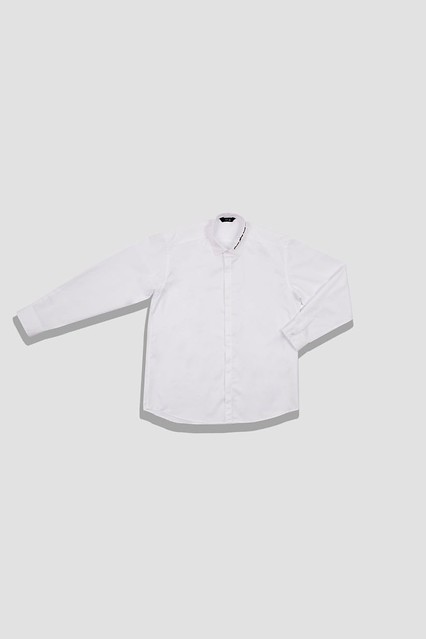Hygiene in a Sheet: Unveiling the Advantages of Disposable Face Towels
Introduction to Disposable Face Towels
Step into a world where hygiene meets convenience with disposable face towels. Imagine the luxury of fresh, clean towels at your fingertips without the hassle of laundry. In this blog post, we will unveil the advantages of these innovative products and explore how they can revolutionize your daily skincare routine. Get ready to discover a new level of cleanliness and simplicity with disposable face towels!
The Benefits of Using Disposable Face Towels
Disposable face towels offer a range of benefits that make them a practical choice for maintaining hygiene. One key advantage is their convenience – simply grab one, use it, and dispose of it without the need for washing or drying. This not only saves time but also reduces the risk of spreading germs through shared towels.
Additionally, disposable face towels are individually wrapped, ensuring each towel is clean and hygienic until you’re ready to use it. This makes them ideal for travel or on-the-go situations where traditional towels may not be as sanitary.
Moreover, using disposable face towels can help prevent skin issues disposable face towel caused by dirty or reused towels. Their single-use nature ensures that each towel is fresh and free from bacteria that could lead to breakouts or irritation.
The benefits of using disposable face towels go beyond just convenience; they promote better hygiene practices and provide peace of mind knowing you’re using a clean towel every time.
Environmental Impact of Disposable Face Towels
Disposable face towels have gained popularity for their convenience and hygiene benefits, but what about their environmental impact? It’s no secret that single-use products contribute to waste accumulation, including disposable face towels. The production and disposal of these items can lead to increased landfill usage and potential harm to wildlife if not properly discarded.
When considering the environmental impact of disposable face towels, it’s essential to weigh the convenience they offer against the long-term effects on our planet. Opting for sustainable alternatives or reducing overall consumption can help mitigate this impact. Recycling options may vary depending on the materials used in the towel production, so it’s crucial to research eco-friendly brands if choosing disposable options.
As consumers become more conscious of their ecological footprint, understanding how our choices affect the environment is key. By making informed decisions about products like disposable face towels, we can work towards a more sustainable future for generations to come.
Comparing Cost and Convenience of Disposable vs. Traditional Face Towels
When it comes to comparing the cost and convenience of disposable face towels versus traditional ones, there are a few key factors to consider. Disposable face towels offer the advantage of being ready-to-use straight out of the packaging, eliminating the need for washing and drying like traditional towels.
From a cost perspective, while disposable face towels may seem pricier upfront than buying a pack of traditional towels, they can actually be more cost-effective in the long run when you factor in water and electricity costs associated with washing regular towels.
In terms of convenience, disposable face towels are perfect for travel or on-the-go use since you can simply toss them after each cotton facial tissue use without worrying about carrying around soiled cloth towels. This makes them ideal for busy lifestyles or situations where cleanliness is paramount.
How to Properly Use and Dispose of Disposable Face Towels
When it comes to using disposable face towels, there are a few simple steps to ensure proper hygiene and disposal. To start, always wash your hands before handling the towel to prevent any transfer of germs. Gently unfold the towel and use it on your face or hands as needed for cleansing or drying.
After use, dispose of the towel in a designated trash bin. Avoid flushing them down the toilet as they can cause clogs in plumbing systems. Make sure to seal the used towels properly in a waste bag or container before throwing them away.
If you’re on-the-go, consider carrying a small resealable bag to store used disposable face towels until you can properly dispose of them later. By following these simple guidelines, you can maintain cleanliness while also being mindful of proper waste management practices.
Alternative Solutions for Sustainable Hygiene Practices
Looking for eco-friendly alternatives to disposable face towels? There are several sustainable options you can consider incorporating into your daily hygiene routine. One popular choice is reusable cloth face towels made from organic cotton or bamboo fibers. These can be washed and reused multiple times, reducing waste significantly.
Another option is using biodegradable paper towels made from recycled materials. While not as long-lasting as cloth towels, they are still a better alternative to traditional disposable options. You can also explore the world of natural fiber-based facial wipes that are both gentle on the skin and environmentally friendly.
For those looking to go even greener, there are innovative cleansing devices like silicone face scrubbers or konjac sponges that offer effective cleaning without the need for any disposable products at all. By making small changes in your hygiene practices, you can contribute to a more sustainable future while keeping your skin healthy and clean.
Conclusion: Making an Informed Decision on Disposable Face Towels
In a world where hygiene is paramount, choosing the right tools for your skincare routine is crucial. Disposable face towels offer a convenient and hygienic solution to daily cleansing needs. Their benefits in terms of cleanliness, convenience, and reduced risk of bacterial growth make them a popular choice for many.
However, it’s essential to consider the environmental impact of disposable face towels. While they provide convenience and sanitation benefits, their single-use nature contributes to waste generation. To mitigate this impact, individuals can explore alternative sustainable options or ensure proper disposal methods.
When comparing the cost and convenience of disposable face towels versus traditional ones, factors such as time saved on laundry and potential savings from reduced skincare product usage should be taken into account. The decision between disposable and traditional face towels depends on personal preferences and priorities.
By understanding how to properly use and dispose of disposable face towels, individuals can maximize their effectiveness while minimizing negative consequences. Following recommended guidelines for usage and disposal ensures optimal hygiene practices are maintained.
In conclusion: Making an informed decision on whether to use disposable face towels involves weighing the pros and cons based on individual needs and values. Whether opting for disposables for added sanitation or choosing reusable alternatives for sustainability reasons, staying informed allows consumers to make choices aligned with their priorities towards maintaining both personal hygiene standards as well as environmental consciousness.



